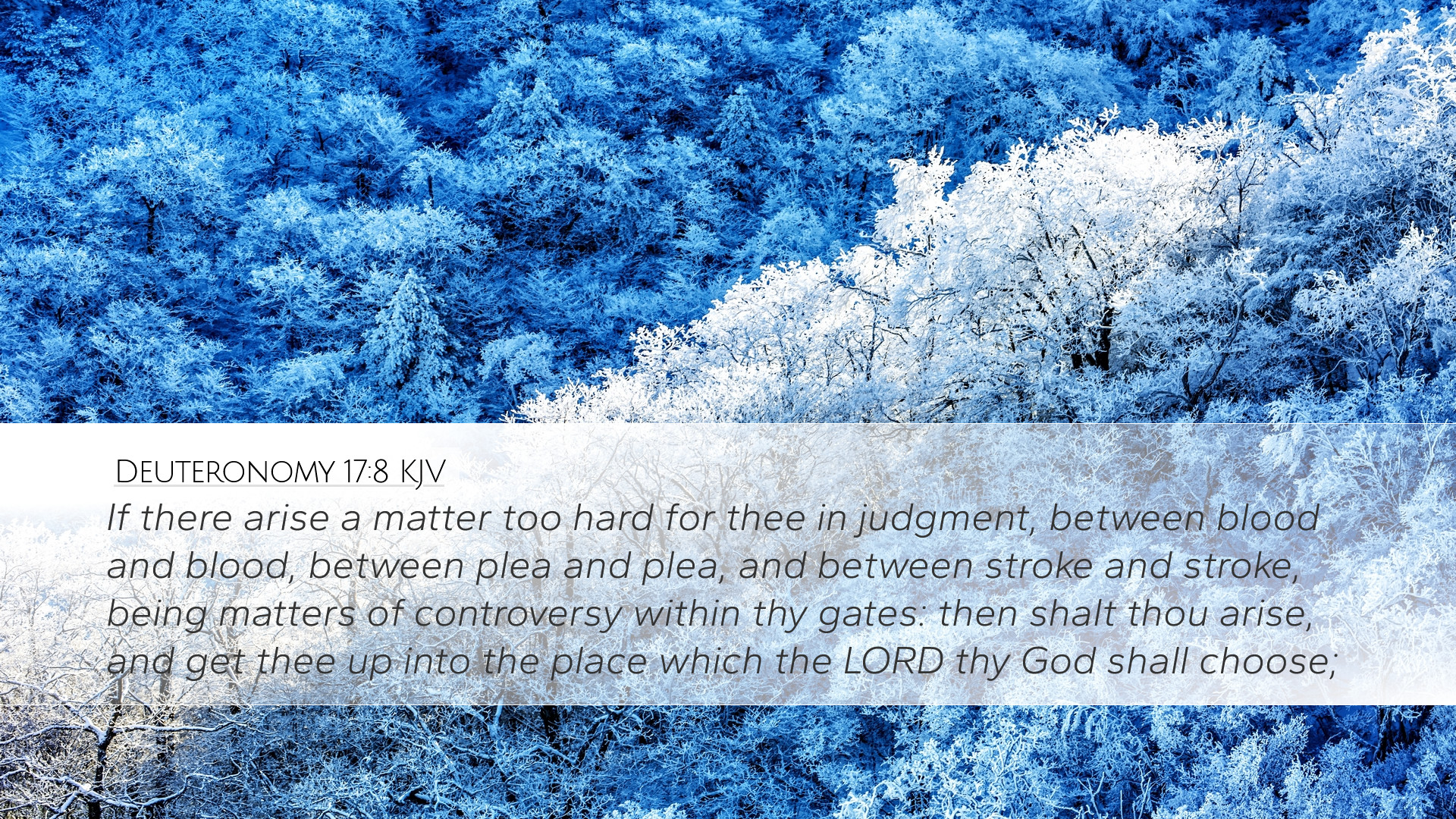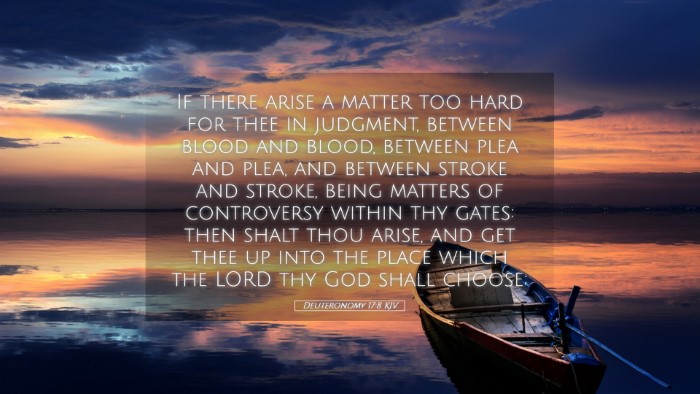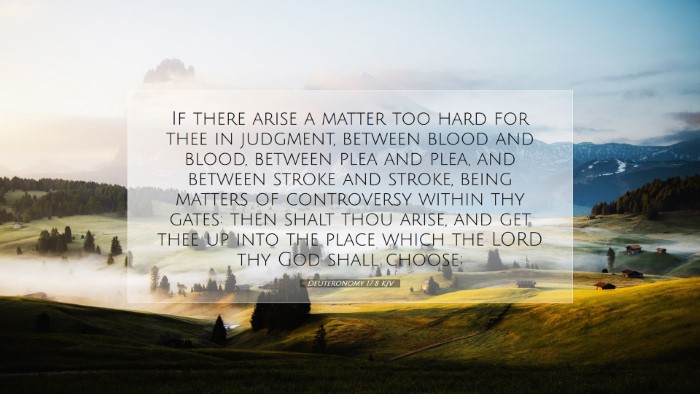Commentary on Deuteronomy 17:8
Text of Deuteronomy 17:8 (KJV): "If there arise a matter too hard for thee in judgment, between blood and blood, between plea and plea, and between stroke and stroke, being matters of controversy within thy gates: then shalt thou arise, and get thee up into the place which the Lord thy God shall choose."
Overview
This verse serves as a directive to the Israelite judges and leaders on handling cases that are complex and difficult to adjudicate. It highlights the emphasis the Mosaic Law places on justice and divine guidance in legal matters. Within the context of ancient Israel, this instruction offers profound insights into the principles of justice founded in the fear of God.
Insights from Matthew Henry
Matthew Henry emphasizes the important principle that God's law must be the ultimate authority in all matters of judgment. According to Henry:
- Human Limitations: Henry notes that the verse acknowledges human limitations in wisdom and understanding. Some matters are intricate beyond human capacity, requiring the intervention of divine wisdom.
- Authority of the Place: The reference to “the place which the Lord thy God shall choose” signifies the centralization of worship and justice in Israel, which foreshadows the ultimate authority of Jerusalem.
- Judgment and Equity: He stresses that judges must approach difficult cases with a spirit of equity and careful consideration, ensuring that personal bias does not cloud judgment.
Insights from Albert Barnes
Albert Barnes provides a theological and practical interpretation, delving into both the historical implementation of this verse and its implications for contemporary believers.
- Court of Appeals: Barnes explains that this verse can be viewed as establishing a form of a court of appeals, wherein difficult cases can be elevated to higher authority, recognizing that even wise judges sometimes encounter complexities beyond their expertise.
- Covenant Community: He reflects on the importance of maintaining the covenant community's integrity through rightful judgment, underscoring that justice is a communal responsibility.
- Divine Guidance: Barnes also emphasizes that divine guidance is not just about seeking counsel but also about ensuring that decisions align with God’s will, illustrating this notion through several examples of biblical characters who sought God in their decision-making processes.
Insights from Adam Clarke
Adam Clarke provides a detailed examination of the context and spiritual significance behind the legal instructions given in this verse.
- Inherent Complexity of Decisions: Clarke points out that life presents complexities that cannot always be navigated through human reasoning alone. He advocates prayerful consideration and seeking divine assistance in pursuit of justice.
- Judicial Responsibility: Clarke highlights the sacred duty of judges and leaders to act in accordance with God’s commandments, noting that this responsibility includes not only the letter of the law but the spirit in which it is carried out.
- Connection to the New Testament: He makes connections to the New Testament, indicating that the principles of divine guidance and truth in judgment carry forward into the teachings of Christ, where believers are encouraged to seek God’s wisdom in all matters of their lives.
Theological Reflections
Combining insights from these esteemed commentaries, we can derive several theological reflections pertinent to the church today:
- The Nature of Justice: Justice is depicted not merely as a legalistic endeavor but as a faithful response to God’s calling. The integration of divine wisdom in judgment underscores the importance of a relationship with God in all aspects of life.
- Community and Authority: The directive emphasizes that no individual is an island; complex issues often require collective wisdom. It serves as a model for pastoral leadership where consultation with others is encouraged.
- Seeking Divine Direction: The verse reiterates the necessity for believers to seek God in all decision-making processes, affirming that true wisdom is found in a continual relationship with the divine.
Conclusion
Deuteronomy 17:8 challenges leaders, judges, and, by extension, all believers to recognize their limitations and to seek the “place” ordained by God for guidance. Through the insights of historical theologians, the deeper principles of justice, communal responsibility, and reliance on God’s wisdom are illuminated, encouraging a holistic approach to navigating difficult moral and legal landscapes. This verse is not merely a historical edict; it speaks timeless truths applicable to modern-day situations faced by individuals, leaders, and congregations alike.


